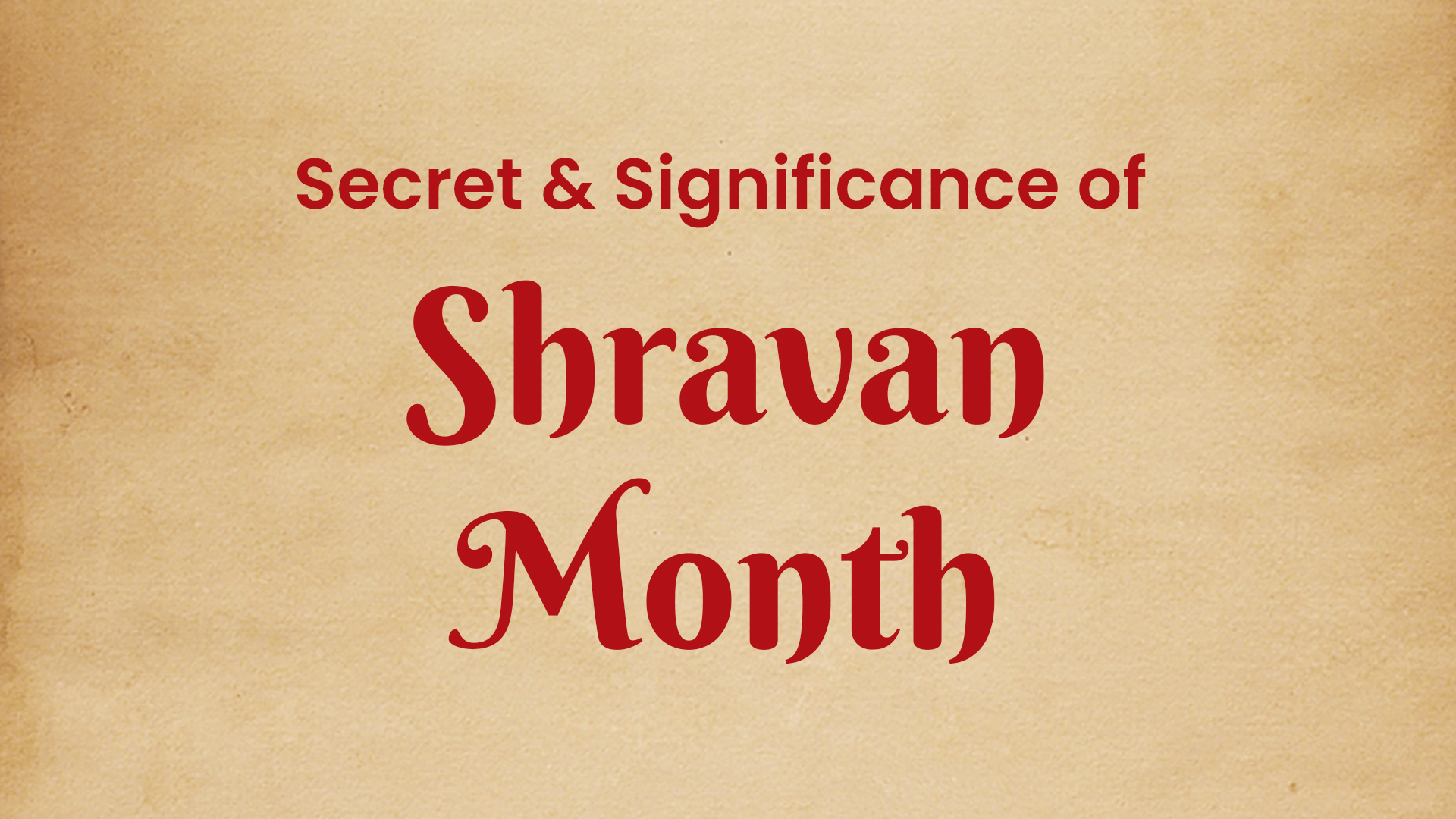In the Vedic and Sanatana Dharma traditions of India, the month of Shravan, also known as Savan, is considered highly auspicious for rituals, worship, and religious activities. Understanding why Shravan month is regarded as so sacred is essential. Upon closer examination, we find that the month of Shravan begins fifteen days after the festival of Guru Purnima, and four days before that is the Ashadhi Ekadashi, also known as Devshayani Ekadashi. This Ekadashi is referred to as “Devshayani Ekadashi” because it is believed that the positive and constructive celestial beings or deities, whom we call “Devas,” become inactive or rest during this time. It is from this Devshayani Ekadashi that the Chaturmas period commences, which lasts until Kartik Shukla Ekadashi. During these four months, we refrain from carrying out auspicious ceremonies such as weddings and house inaugurations. So how can the upcoming month of Shravan be considered the holiest? Some scholars argue that during the Chaturmas period, saints and sages become stationary, refraining from undertaking journeys and providing opportunities for people to receive religious teachings. Hence, the month of Shravan is considered the most sacred. If that is the reason, then all four months of Chaturmas should be regarded as equally holy. The answer to why the month of “Savan” specifically is considered the most sacred or auspicious is found in the Skanda Purana.
Lord Shiva himself has said while conversing with the sages Sanat Kumaras:
“द्वादशस्वपि मासेषु श्रावणो मेऽतिवल्लभः
श्रवणार्ह यन् माहात्म्यम् तेनासौ श्रवणो मत: ।
– स्कंद पुराण
Among the twelve months, I have a special fondness for the month of Shravan or Savan. Its significance or importance lies in the fact that it is worthy of being listened to or observed, which is why it is called the month of ‘Shravan’.”
-Skand Purana
So, the word ‘श्रवण’ is transformed into ‘श्रावण’. Now, the word ‘श्रवण’ has two meanings – one is the Shravan Nakshatra and the other is listening. It is clearly stated in the Skanda Purana that the term ‘श्रावण मास’ is derived from these two meanings.
“श्रवणर्क्ष पौर्णमास्याम् ततोऽपि श्रावणः स्मृतः ।
यस्य श्रवणमात्रेण सिद्धिदः श्रावणोऽप्यतः ॥
– स्कन्दपुराण
On the full moon day of the month of Shravan, it is said that Shravan is even more auspicious. By the mere act of listening to it (Shravan), one can attain success, therefore Shravan itself is considered significant.”
-Skand Purana
Let’s decode the verse. Based on the position of the moon in a particular Nakshatra on the day of Purnima (full moon) in the Indian month, the names of the months are assigned. For example, if the moon is in the Krittika Nakshatra on the day of Purnima, the month is named Kartik. Similarly, if it is in the Chitra Nakshatra, the month is named Chaitra. Likewise, on the day of Purnima, when the moon is in the Shravan Nakshatra, the month is called Shravan or Savan. What’s interesting is that this energy of that Nakshatra becomes dominant throughout the world during that month. Explaining the energies of the Shravan Nakshatra, this verse is given in the text ‘Jatakabharan’ :
“शास्त्र अनुरुक्तो बहुपुत्रमित्रः सत्यपात्रभक्तिः विजिता अरिपक्षः ।
प्राणी पुराणश्रवणप्रवीणश्चेद् जन्मकाले श्रवणं हि यस्य ॥
– जातकाभरण
The Shravan Nakshatra is associated with an inclination towards studying scriptures and being in a receptive mode. Social life tends to be good, and there is a greater inclination towards positive and constructive things.”
-Jataka Bharan
Decoding the verse suggests that people naturally have a desire to listen to positive, inspirational, motivational, and spiritual things. They feel inclined to socialize and be in the company of virtuous individuals. Additionally, it implies that we can overcome destructive people or energies that may cause harm and attain victory.
Not only that, but we can also follow the advice or path that is beneficial for us. During the month of Shravan, there are unique astronomical energies available to all due to the unique position of the stars, which is why it is considered the most sacred.
Now, let us understand the second meaning of Shravan. It means – listening. Now, the famous verse by Chanakya explains the benefits of listening attentively:
“श्रुत्वा धर्मम् विजानाति श्रुत्वा त्यजति दुर्भतिम् ।
श्रुत्वा ज्ञानम् आप्नोति श्रुत्वा मोक्षम् अवाप्नुयात् ॥
– चाणक्यजी
By listening, one understands righteousness (dharma). By listening, one abandons misfortune. By listening, one attains knowledge. By listening, one attains liberation (moksha).”
-Chanakya Ji
The verse highlights four benefits of listening:
1. Through listening, one can acquire knowledge of righteousness (dharma).
2. Listening helps eliminate bad thoughts or wrong understanding.
3. Listening leads to the attainment of true knowledge.
4. Through listening, one can attain liberation or moksha.
Now, while we listen to various things, during the month of Shravan, the possibility of experiencing the effects of what we hear increases. Whatever we listen to during the month of Shravan has an impact on us because we are also in the highest receptive mode due to the universal energy being in a receptive mode.
Therefore, in our culture, during the month of Shravan, the highest number of stories, discourses, and knowledge rituals are performed.
If you want to break any destructive patterns, bring constructive changes in your life, or earn merit through the remembrance of God, then the month of Shravan will provide you with unbelievable help.
Remember, listening and implementing what you have heard, to attain merit or make changes in life according to it, can easily be done during the month of Shravan, and that is why this month holds significance.
With this prayer that the month of Shravan brings happiness, peace, and prosperity in all our lives, I will now pause my words.
Shubham Bhavatu.







